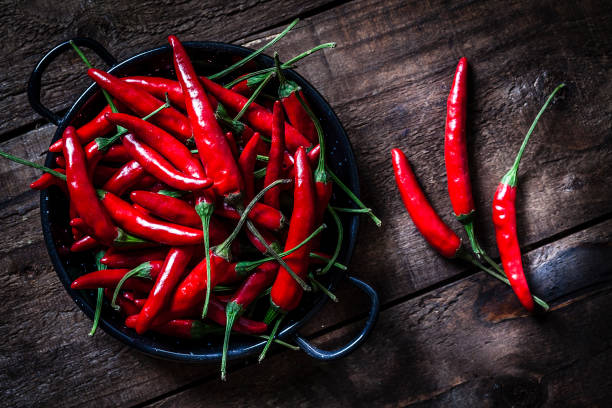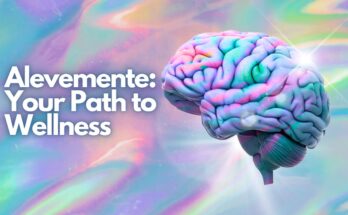Capsaicin reduces inflammation
The active ingredient in red chilies, capsaicin, is used in numerous medical treatments. It is FDA-approved for several indications, including arthritis, musculoskeletal pain, postoperative complications, neuropathic pain, and psoriasis. However, the benefits of capsaicin are not well understood. Regardless of its effectiveness, it is important to note that it is not a cure for any condition, and no one should take it for any period of time.
This ingredient works by binding to a receptor on pain-sensitive nerve fibers in the skin. When the pain-sensing nerve fibers are inhibited, they no longer send pain impulses to the brain. In addition, capsaicin inhibits the re-accumulation of substance P in peripheral sensory neurons. Thus, it helps reduce inflammation. Moreover, capsaicin reduces the risk of developing rheumatoid arthritis.
Capsaicin reduces cholesterol
Research has shown that capsaicin, a substance found in chili peppers, can lower total cholesterol levels and lower “bad” cholesterol levels. This substance did not affect levels of “good” cholesterol. Despite the results of the initial studies, the compound still needs more research in humans to be proven as true cholesterol-reducing food. In addition to reducing total cholesterol levels, capsaicin has several potential health benefits. It also help in ED or may take cenforce 100 mg.
Unlike most studies on food, however, capsaicin can also reduce cholesterol levels. It does so by activating the TRPV1 receptor found in endothelial cells. Because of this, it could serve as an important target for drugs targeting high blood pressure. Regardless of the mechanism, incorporating capsaicin in your diet could be a promising lifestyle intervention for people suffering from high blood pressure.
Capsaicin reduces blood clots
Scientists are still trying to figure out exactly how capsaicin in red chili can reduce blood clots. Researchers have discovered that capsaicin increases blood flow to the stomach, stimulates the production of digestive juices, and protects the stomach from the damage caused by alcohol. While these findings are encouraging, they are not yet a magic bullet. Further studies are necessary to confirm these findings.
In addition, capsaicin can help lower cholesterol levels and decrease blood pressure. It does so by tricking the body into thinking it is eating more salt. As a result, people can use less salt in their diets. Studies have also found that capsaicin in chili can improve heart disease risk factors. Despite the lack of concrete evidence, these benefits are well worth considering.
Capsaicin relieves migraines
Using the chemical capsaicin in peppers to treat migraines and other types of headaches has shown some promise. In a study done at the University of Chicago, capsaicin reduced pain by inhibiting the production of Substance P, which is responsible for triggering pain signals in the brain. This chemical also worked to treat HIV neuropathy and shingles. Pharmacological researchers are currently working on a drug that will prevent this increased blood flow or may take fildena double 200.
In a study conducted by Maria Alexianu, Dr. Chatterjee, and her team found that capsaicin was effective for pain relief. Relief came within a few minutes to several hours after using capsaicin. Although capsaicin causes an uncomfortable nasal sting, the patients continued to take it even if it resulted in tearing eyes or a burning sensation in the nose. Moreover, they also reported that capsaicin did not interfere with their daily lives or prevent them from getting migraines.
Capsaicin reduces cancer cell growth
There are some promising results from studies in which capsaicin is found to reduce the growth of cancer cells. A large case-control study conducted on Colo 205 cells and xenograft mice suggests that capsaicin reduces cancer cell growth by increasing the levels of the antioxidant cytokine, apoptosis. The results are encouraging but further research is necessary to confirm these findings.
One of the mechanisms by which capsaicin inhibits cancer cell growth is its ability to induce autophagy. Autophagy is a cellular process by which cells recycle themselves into energy. Moreover, capsaicin has been shown to induce autophagy in malignant cell lines, including colorectal cancer cell line HCT116, and breast cancer cell line MCF-7. Autophagy is a crucial step in cell death and is essential for healthy cell functioning.
The health benefits of red chili pepper are often touted in health literature, but there are also some disadvantages. While this pepper is considered healthy, some people don’t appreciate its high spice. Also, some people are allergic to highly spicy foods. In addition, there are past studies that have linked chili pepper consumption to gallbladder cancer. Though not conclusive, these results suggest that chili pepper consumption may help prevent gallbladder cancer.
Capsaicin reduces inflammation
The active ingredient in red chilies, capsaicin, is used in numerous medical treatments. It is FDA-approved for several indications, including arthritis, musculoskeletal pain, postoperative complications, neuropathic pain, and psoriasis. However, the benefits of capsaicin are not well understood. Regardless of its effectiveness, it is important to note that it is not a cure for any condition, and no one should take it for any period of time.
This ingredient works by binding to a receptor on pain-sensitive nerve fibers in the skin. When the pain-sensing nerve fibers are inhibited, they no longer send pain impulses to the brain. In addition, capsaicin inhibits the re-accumulation of substance P in peripheral sensory neurons. Thus, it helps reduce inflammation. Moreover, capsaicin reduces the risk of developing rheumatoid arthritis.
Capsaicin reduces cholesterol
Research has shown that capsaicin, a substance found in chili peppers, can lower total cholesterol levels and lower “bad” cholesterol levels. This substance did not affect levels of “good” cholesterol. Despite the results of the initial studies, the compound still needs more research in humans to be proven as true cholesterol-reducing food. In addition to reducing total cholesterol levels, capsaicin has several potential health benefits.
Unlike most studies on food, however, capsaicin can also reduce cholesterol levels. It does so by activating the TRPV1 receptor found in endothelial cells. Because of this, it could serve as an important target for drugs targeting high blood pressure. Regardless of the mechanism, incorporating capsaicin in your diet could be a promising lifestyle intervention for people suffering from high blood pressure.
Capsaicin reduces blood clots
Scientists are still trying to figure out exactly how capsaicin in red chili can reduce blood clots. Researchers have discovered that capsaicin increases blood flow to the stomach, stimulates the production of digestive juices, and protects the stomach from the damage caused by alcohol. While these findings are encouraging, they are not yet a magic bullet. Further studies are necessary to confirm these findings.
In addition, capsaicin can help lower cholesterol levels and decrease blood pressure. It does so by tricking the body into thinking it is eating more salt. As a result, people can use less salt in their diets. Studies have also found that capsaicin in chili can improve heart disease risk factors. Despite the lack of concrete evidence, these benefits are well worth considering.
Capsaicin relieves migraines
Using the chemical capsaicin in peppers to treat migraines and other types of headaches has shown some promise. In a study done at the University of Chicago, capsaicin reduced pain by inhibiting the production of Substance P, which is responsible for triggering pain signals in the brain. This chemical also worked to treat HIV neuropathy and shingles. Pharmacological researchers are currently working on a drug that will prevent this increased blood flow.
In a study conducted by Maria Alexianu, Dr. Chatterjee, and her team found that capsaicin was effective for pain relief. Relief came within a few minutes to several hours after using capsaicin. Although capsaicin causes an uncomfortable nasal sting, the patients continued to take it even if it resulted in tearing eyes or a burning sensation in the nose. Moreover, they also reported that capsaicin did not interfere with their daily lives or prevent them from getting migraines.
Capsaicin reduces cancer cell growth
There are some promising results from studies in which capsaicin is found to reduce the growth of cancer cells. A large case-control study conducted on Colo 205 cells and xenograft mice suggests that capsaicin reduces cancer cell growth by increasing the levels of the antioxidant cytokine, apoptosis. The results are encouraging but further research is necessary to confirm these findings.
One of the mechanisms by which capsaicin inhibits cancer cell growth is its ability to induce autophagy. Autophagy is a cellular process by which cells recycle themselves into energy. Moreover, capsaicin has been shown to induce autophagy in malignant cell lines, including colorectal cancer cell line HCT116, and breast cancer cell line MCF-7. Autophagy is a crucial step in cell death and is essential for healthy cell functioning.




